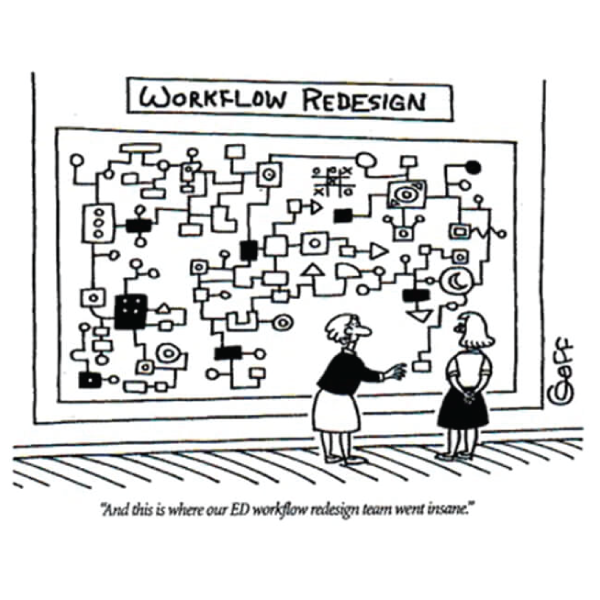Complexity. It is a word that people believe is synonymous with business these days. And I understand why. A company may start with a simple idea, and as it succeeds and expands, new processes, actions, efforts (the cogs that make the business operate) grow, and the speed at which this occurs can add complexity, whether or not it was intended. This complexity can work its way into the fabric of the company, and paves the path to pushing an organization towards longer decision making times, greater learning times, and a stifling of success.
These unintended effects of complexity is the main reason why we focus on striving for simplicity in Salesforce implementations for your company. We believe in this philosophy so much, we’ve branded ourselves with the very word! We are absolutely cognizant of the fact that using simplicity as a foundational approach may not be the easiest path, but as Steve Jobs said on the matter, “Simple can be harder than complex. You have to work hard to get your thinking clean to make it simple. But it’s worth it in the end because once you get there, you can move mountains.”
So why does simplicity matter when implementing Salesforce as a tool within your organization? Here are four key benefits to embracing simplicity in a Salesforce implementation:
Enhancing User Adoption:
A fundamental goal for any technology implementation is to ensure that users fully embrace and utilize the new system. The simplicity of the Salesforce interface significantly contributes to achieving this. By avoiding an overload of unnecessary features, we ensure that the system is not intimidating, thereby enhancing user comfort and reducing resistance. Tailoring the Salesforce environment specifically to the needs of your team means they encounter no superfluous complexities that could detract from their daily tasks.
Streamlining Processes Efficiently:
The clarity that comes with simplicity allows us to streamline processes within your organization effectively. An over-engineered CRM system can create cumbersome processes that slow your operations rather than expedite them. By stripping back to essential features that directly benefit your business, unnecessary steps are eliminated, workflows are simplified, and overall efficiency is enhanced. This precise focus prevents your team from being bogged down by intricate procedures, allowing them to concentrate on their core duties.
Cost Efficiency:
Choosing simplicity in your Salesforce implementation can also lead to significant financial advantages. Customizing the platform with only the essential features reduces both initial setup costs and ongoing maintenance expenses. Overly complex systems laden with extensive customizations and integrations not only require more resources to establish but also to sustain. By streamlining your system, you minimize potential points of failure and the subsequent costs for fixes, thus improving your return on investment.
Increased Scalability:
A simpler Salesforce setup provides greater flexibility and is easier to scale as your business evolves. Systems that are unnecessarily complex can become rigid and difficult to adjust. A straightforward setup, on the other hand, can be quickly modified to accommodate changing needs, ensuring your organization remains agile and responsive to market dynamics.
In Conclusion
In today’s business world, simplicity reigns supreme when configuring Salesforce. By emphasizing ease of use, we not only accelerate results and adapt more readily to changes but also optimize financial expenditure over the long term. A streamlined Salesforce setup can markedly enhance your team’s performance and satisfaction.
Are you ready to simplify your Salesforce journey and unlock its full potential? Reach out to us today, and let’s begin crafting your Salesforce setup to be as effective and straightforward as possible.




